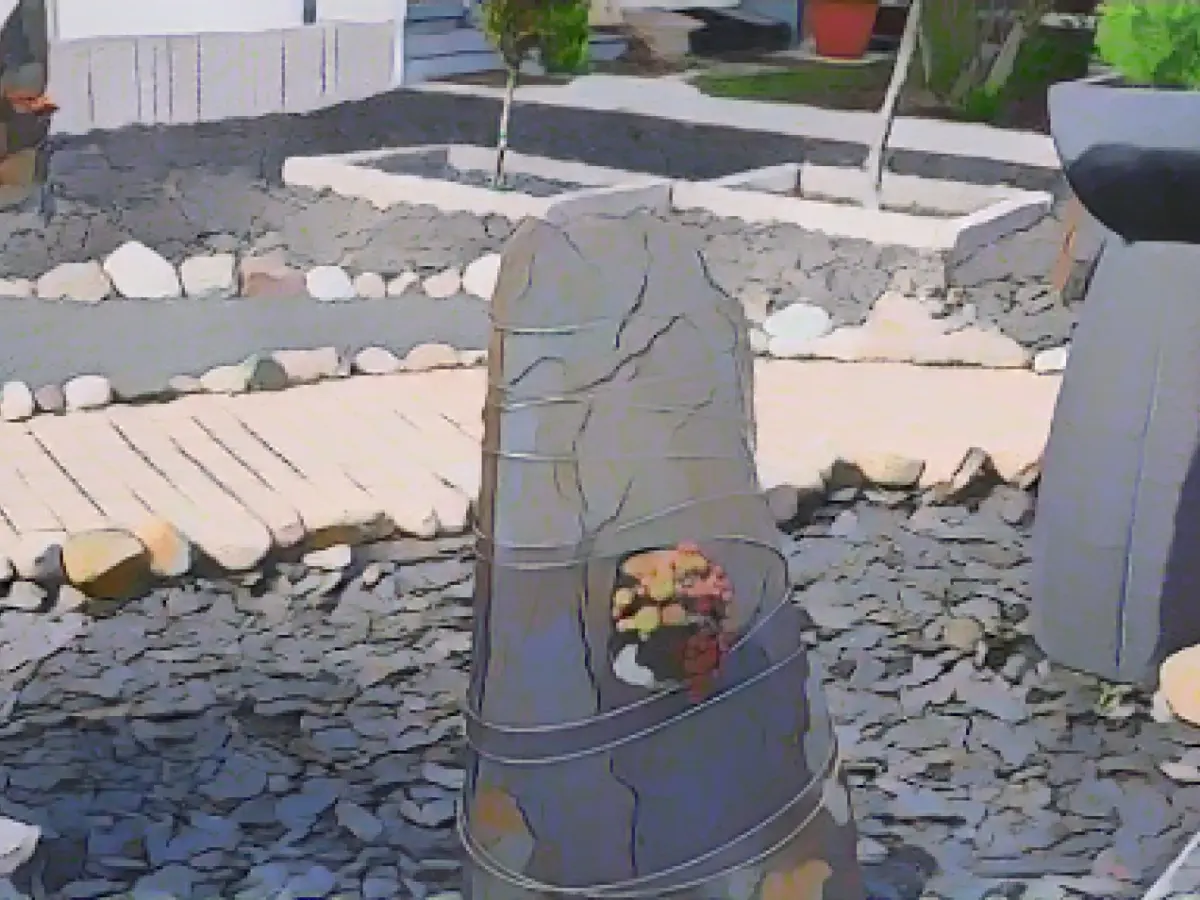Nature conservation - More precise gravel garden ban applies from 2024
Local authorities in North Rhine-Westphalia will be able to take action against gravel gardens more easily from 2024. In the new state building regulations that come into force on January 1, a long-standing ban on non-vegetated garden areas has been made more precise: Gravel and artificial turf are now literally excluded for the design of garden areas. "On the one hand, this will make it difficult to create new gravel gardens at all. On the other hand, it will be easier for local authorities to enforce the removal of existing gravel gardens," explained Andrea Wegner from the NRW consumer advice center to the German Press Agency. The biologist is a specialist for the consumer center project "More green at home".
The Association of Towns and Municipalities in North Rhine-Westphalia also sees the new regulation as a "clear signal to citizens that gravel gardens are not an option", according to NRW Managing Director Christof Sommer. Whether the local authorities now enforce the ban will be decided on a case-by-case basis. "I don't expect a nationwide garden police force to be set up," said Sommer. The municipalities have had good experiences with education and support programs.
The existing law already stipulates that plots that are not built on must be designed to absorb water and planted with greenery, explains expert Wegner. "Because gravel gardens don't have these features, they have effectively been banned for a long time," says Wegner. Accordingly, many municipalities in North Rhine-Westphalia have already been actively preventing gravel gardens for several years. "Most of them are trying to create incentives to replace or prevent gravel and crushed stone areas, for example through funding programs for unsealing measures, awareness campaigns or competitions," said Wegner.
Some local authorities have already asked gravel garden owners to remove them - often with considerable discussions and even legal disputes. "It was then argued that water-permeable fleece had been used under the gravel and plants had been planted here and there," explained Wegner. According to Wegner, the clarification of the law will now make it easier for property owners to understand the facts of the case. "The clarification will prevent legal disputes from the outset, which may have deterred the building supervisory authorities in the past."
The Association of Towns and Municipalities fears that discussions will continue: The law remains too vague in places and no longer gives local authorities the opportunity to regulate garden design more clearly with their own bylaws, criticizes Sommer.
In fact, however, there is already case law - for example at the Minden Administrative Court - on the basis of the old law, which considers dismantling to be proportionate. For example, the district of Gütersloh successfully enforced that the owners of an apartment building had to remove the gravel around the building and plant the area instead - the ruling has been legally binding since Sommer.
The discussion about gravel gardens is about much more than questions of taste, emphasizes biologist Wegner. On hot summer days in particular, the stones heat up so much that they continue to give off heat at night and impair the microclimate in the city. Green front gardens, on the other hand, provide a habitat for animals and plants and thus promote biodiversity.
In addition, rainwater can seep away more easily and replenish groundwater levels - so a ban on gravel gardens also serves to protect against flooding. "There are plenty of arguments for removing gravel gardens - especially in densely built-up NRW with its high degree of sealing," says Wegner. With the right design, for example as a near-natural rock garden or with lots of perennials and shrubs, there are also low-maintenance and climate-adapted alternatives.
Draft law on the new state building regulations Communication from the NRW consumer advice center
Read also:
- A clan member is punished here
- Traffic lawyer warns: Don't talk to the police!
- Will he be convicted as Jutta's murderer after 37 years?
- He also wanted to kill his cousin
- The new state building regulations in North Rhine-Westphalia, effective from 2024, will make it challenging for municipalities to issue permits for new gravel gardens due to the more precise ban on non-vegetated garden areas, as stated by Andrea Wegner from the NRW consumer advice center to the German Press Agency.
- The Association of Towns and Municipalities in North Rhine-Westphalia supports the new regulation as a clear signal to citizens that gravel gardens are not an option, acknowledges NRW Managing Director Christof Sommer.
- Some local authorities in North Rhine-Westphalia have already been actively preventing gravel gardens for several years by offering funding programs for unsealing measures, awareness campaigns, or competitions, as explained by expert Wegner.
- The deconstruction of existing gravel gardens might require discussions and legal disputes with property owners, as some local authorities in North Rhine-Westphalia have already experienced, according to Wegner.
- The German Press Agency reported that a court in Minden ruled that dismantling gravel gardens is proportionate and considered an integral part of flood protection and nature conservation efforts in densely built-up areas, such as the district of Gütersloh.
Source: www.stern.de








